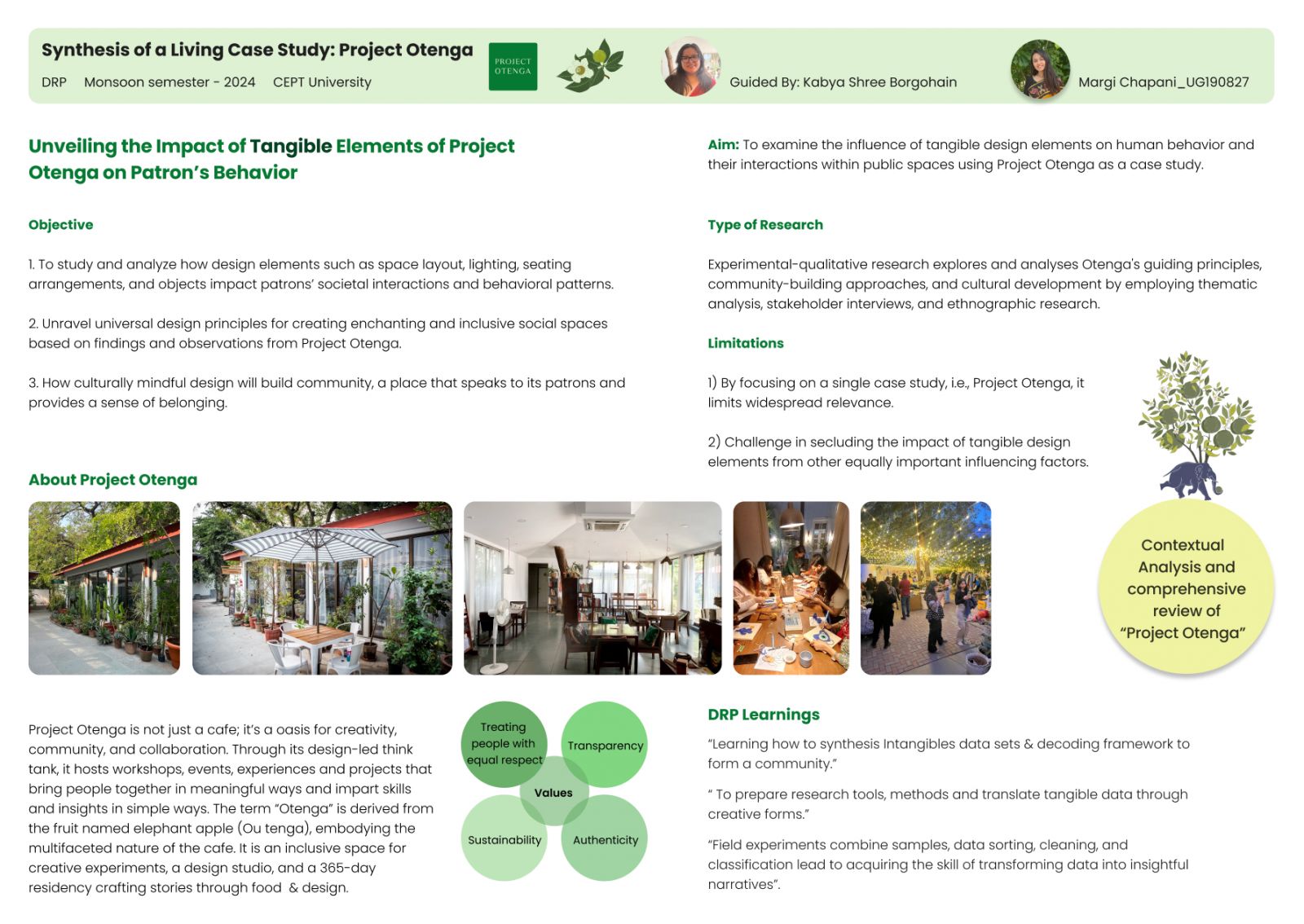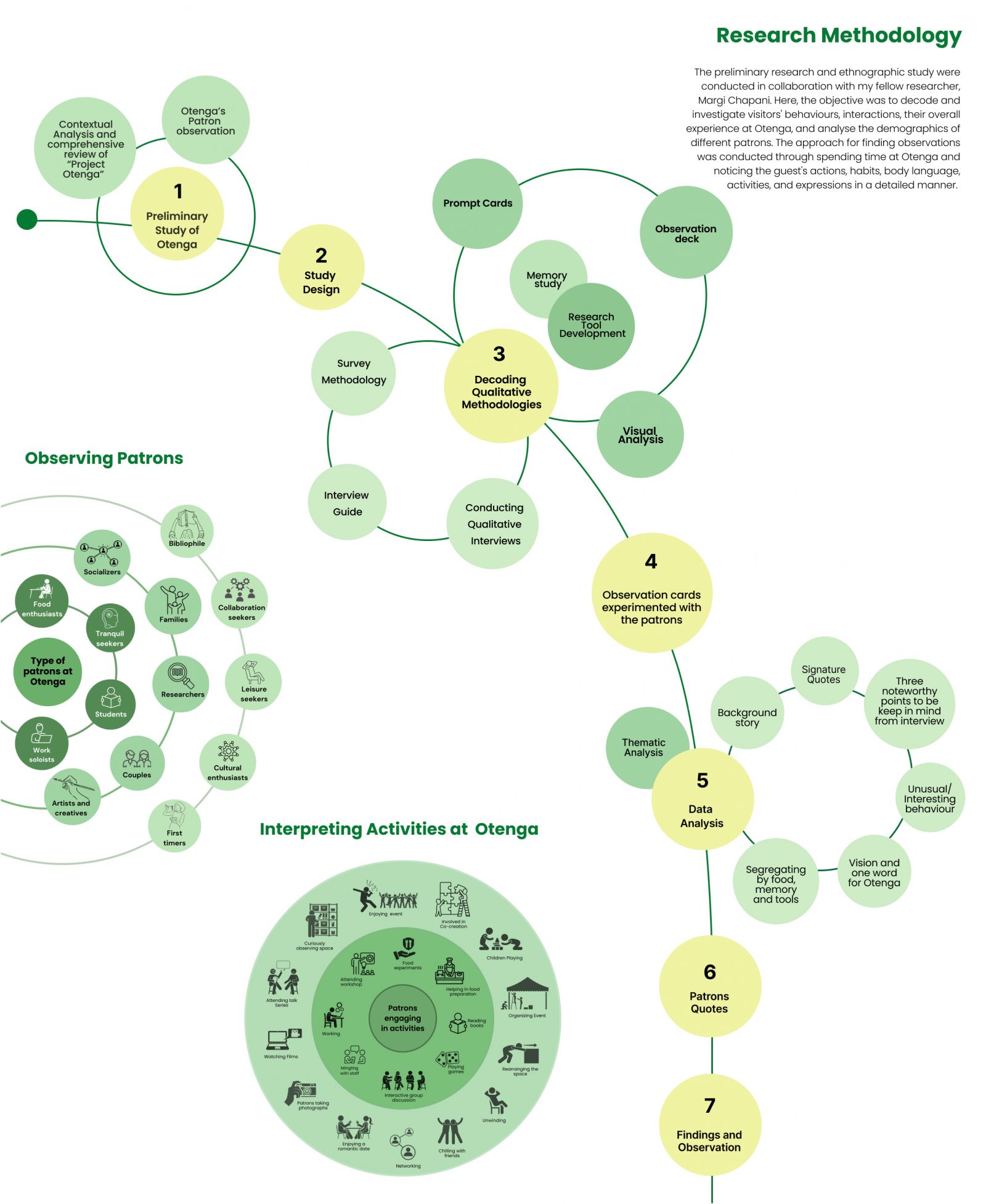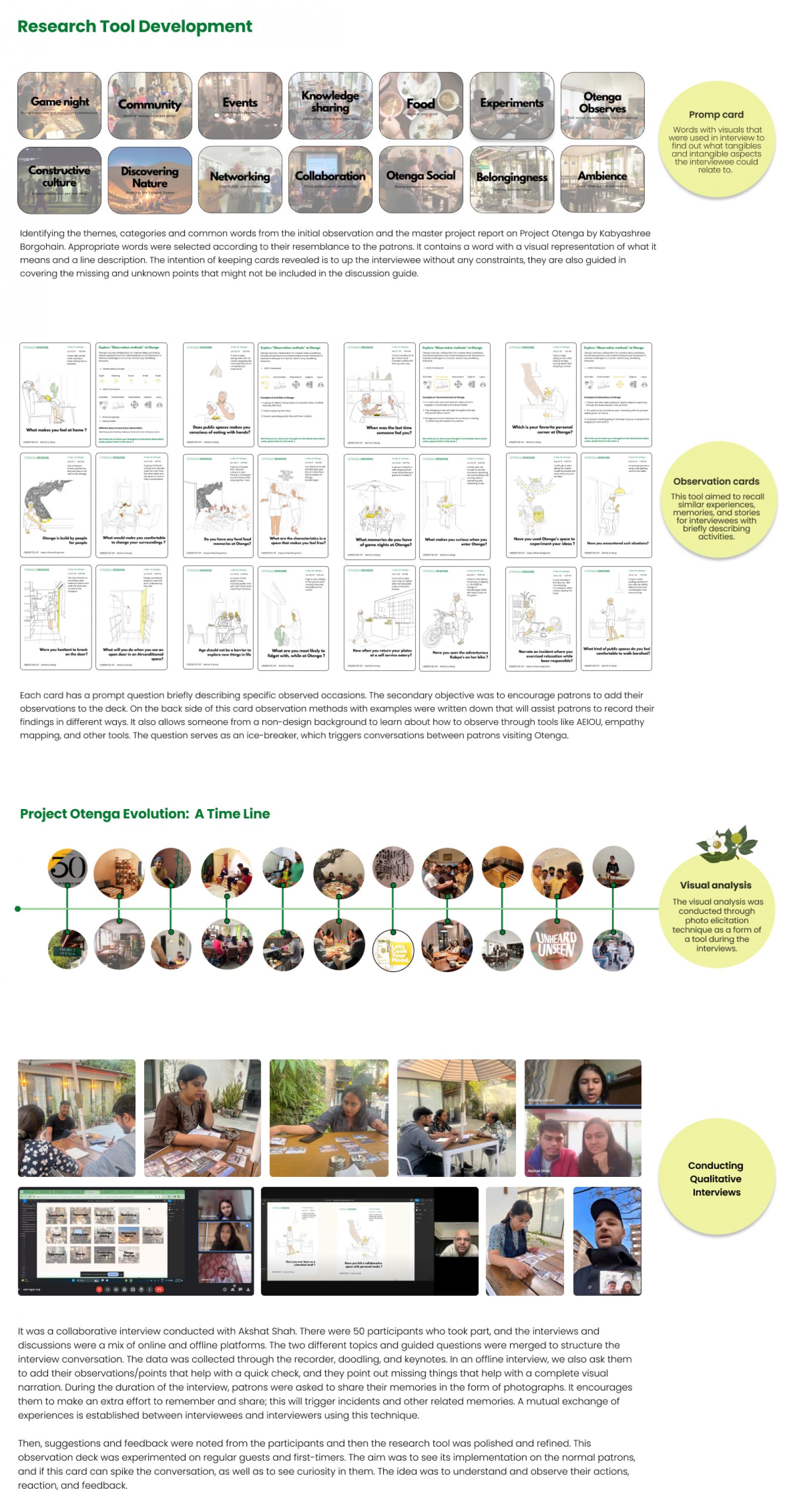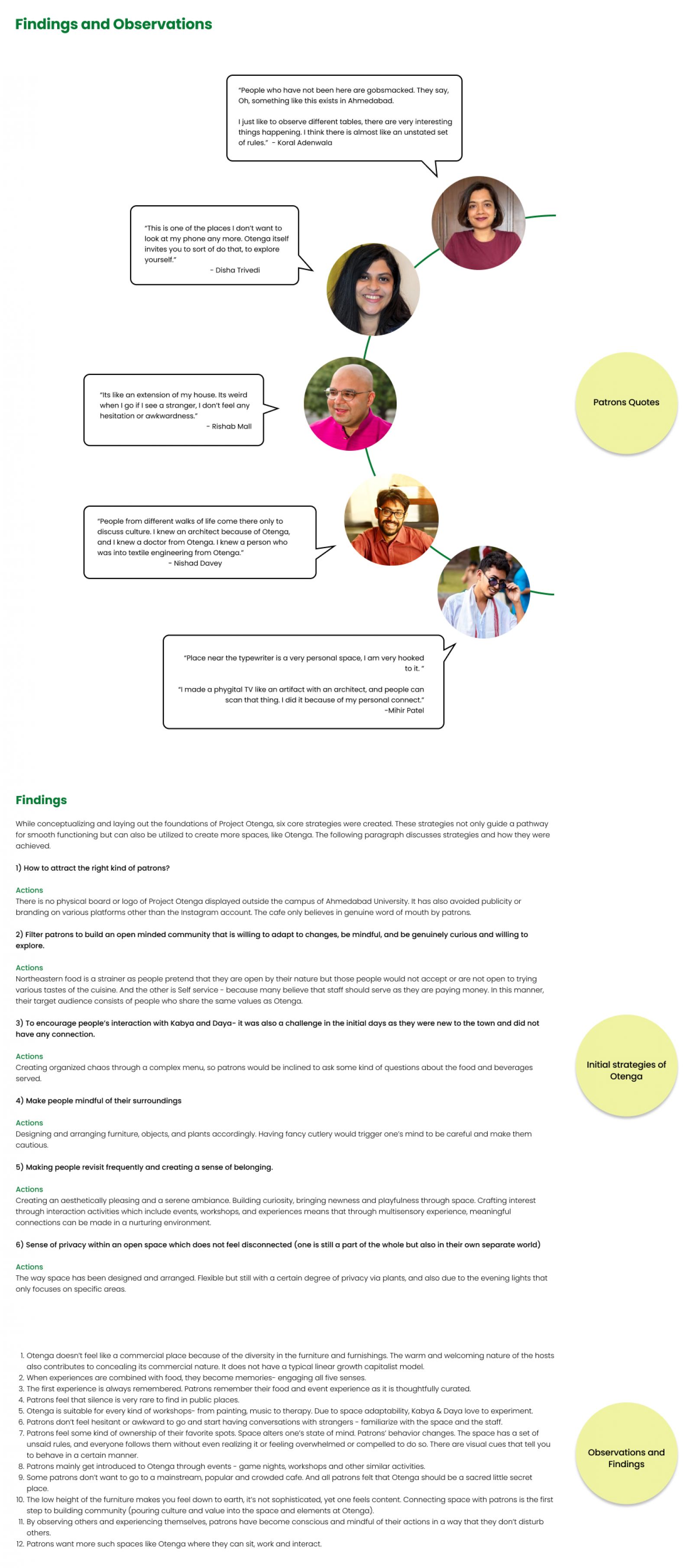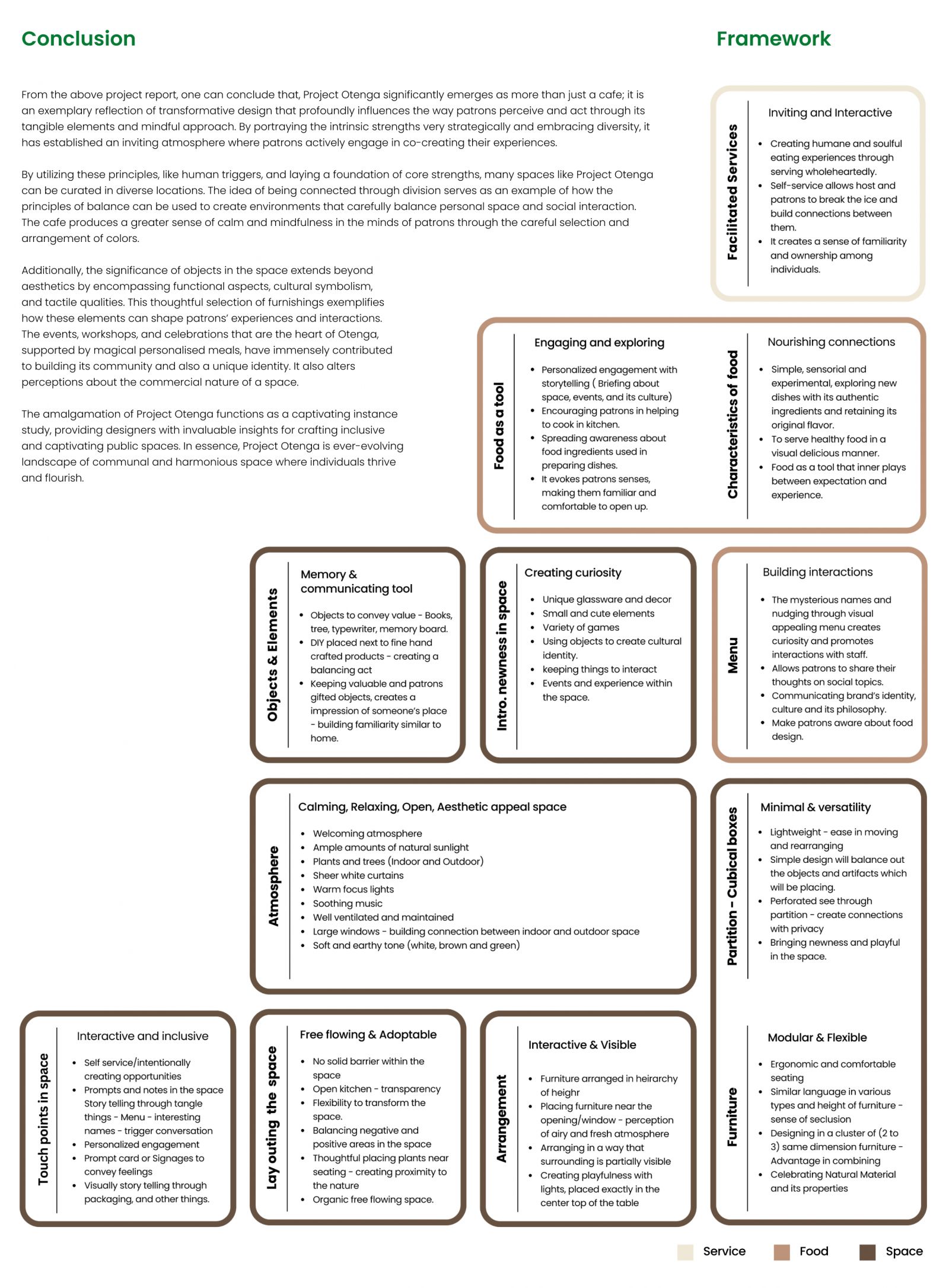Your browser is out-of-date!
For a richer surfing experience on our website, please update your browser. Update my browser now!
For a richer surfing experience on our website, please update your browser. Update my browser now!
This research addresses the intricate relationship between tangible design elements and the behavioral patterns of patrons in communal environments, with a focus on Project Otenga, a multi-modal cafe and design studio, in Ahmedabad.
By implementing a systematic approach that starts with a study of Otenga’s origins and evolution over the years, the research comprises conducting wide-ranging interviews with patrons, staff, and stakeholders, building significant research tools, and collecting data. The primary objective is to identify the role of spatial design in creating an atmosphere of inclusivity and fostering a mindful community.
Using the key design principles of Otenga, this research will serve as the foundation for creating more such enchanting public spaces, encouraging co-creation via community engagement.
